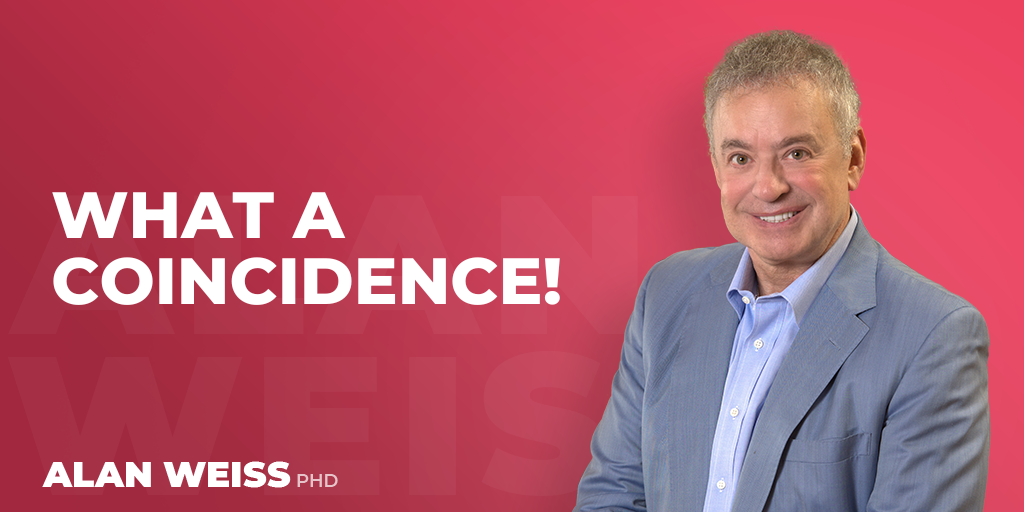A Brief History of Breakthrough
Of all my books, Million Dollar Consulting is by far my best seller, having something over 400,000 readers, in its fourth edition, and on the shelves for 18 consecutive years. That is relatively rare. Its name has created perhaps the most powerful brand in solo consulting, and its use is a registered trademark, as in Million Dollar Consulting® College. I can trace probably 90 percent of current revenues directly or indirectly to it.
So how did this come about?
I wrote my first book in 1988, when a colleague asked if I’d be interested in co-authoring a work on innovation (we would both conceptualize, I would write). The resultant The Innovation Formula went from hard cover to soft cover, became part of a HarperCollins strategy series, was picked up by Wharton, Villanova, and Temple, and was translated into German and Italian.
Based on its success, I pitched and wrote my first solo book for HarperCollins, Managing for Peak Performance. That went from hard cover to soft cover, and was translated into German. Based on that success, I pitched and wrote a strategy book, Making It Work, which never made it out of hardcover for the same publisher. And that was my last book with HarperCollins to this day, having placed my first three with them. (I now own Making It Work, and have re-released it as Best Laid Plans, a far better title.)
I then set out to write Confessions of A Consultant, which would inform executives about good and poor practices, how to choose consulting help, what to reasonably expect and pay for, and so forth. I had read in a National Speakers Association magazine that an agent named Jeff Herman liked to represent speakers and consultants. I sent him my first thee books and my latest idea, and he immediately signed me. (He is today responsible for placing my three best-selling books, and is still my agent.)
Confessions was rejected 15 or 18 times. Then one day Jeff called me in my car while I was returning from speaking in Hartford. I had one of the first car phones in New England in 1991, and it was a regular phone handset hard-wired into the dash of my Mercedes 450 SLC.
“I’m at McGraw-Hill,” said Jeff.
“McGraw-Hill!” I shouted. “They like the book?!” I considered McGraw then and I do now, to be one of the great business publishers.
“No, they hate the premise, but they are interested in publishing a book on how you can make a million dollars a year in solo consulting. That part of your credentials impressed them. Can you write a book like that?”
“In six minutes,” I whispered.
“I’ll tell them six months,” he said, putting his hand obviously over the phone, and then responded, “We have a deal, I’ll work it out.”
Four months later I had finished the manuscript and had offered to meet once again the senior business editor at McGraw, Betsy Brown, in her Manhattan office. This was our third meeting.
“We’re going into production tomorrow,” she said, “and we can’t call this Confessions of a Consultant any more. What do you want to call it?”
Standing, I said, “I’ll give it some thought.”
“Sit,” she said (you tended to do what Betsy Brown ordered, a strikingly beautiful woman who took no prisoners and whom I was always chasing after in the halls despite her stilettos). “I want the title right now.”
“Betsy, I don’t know what to tell you. It’s a book about how to make a million dollars consulting.”
“Ah, and there it is!” she said.
The rest is not just history, but my present and future.
What happened during this crazy journey?
• I agreed to write a co-authored book, though I had never done a book.
• I pitched a second and third book to the publisher.
• I joined a professional association and searched it for resources.
• I found an agent, having three books to bolster my credibility.
• I did not get depressed over all the rejections.
• I readily agreed to change the premise of the book.
• I visited my editor.
• I used a spur-of-the-moment title.
• I recognized a brand when I saw one.
• I was willing to transform my business.
I’m not smart enough to tell you what’s going to happen tomorrow, but I’m agile and quick enough to jump on what’s happening today. My story is not unique. You can find these combinations of luck, accident, resilience, and talent all over.
My reaction is to always push the throttle forward. I’ll slow down only if I begin to lose control. In the meantime, I intend to take a fabulous ride.
What about you? Are you racing into the turns or riding the brake?
© Alan Weiss 2010. All rights reserved.







J. Scott
Alan, Nice background. I’ve given away many copies of Million Dollar Consulting and recommend to anyone even remotely considering the trade.
I am finding that I enjoy the speaking component more than process consulting, and your advice in one of your books about how clients pay us for advice but won’t always follow it truly helped me with one client.
As for my practice, I’m gaining momentum with each passing day–not “racing” as such, but getting better 1% at a time (where have I heard that?:))
Thanks for all you do!
Cordially, Scott
Alan Weiss
Thanks, Scott, good to hear from you!
Dan Weedin
Great story, Alan. Even though I’ve heard it before, I always take a new piece of wisdom away from it. Thanks!
Dan
Maria Pinochet
Alan,
How inspiring! To think it was all those seemingly unconnected steps that led you to the precise moment that created a work that has benefited so many readers. Some of those insights have lead to lively LinkedIn discussions – Thanks for sharing your story and taking the time to add value to the profession.
Respectfully, Maria
Alan Weiss
Thanks, Maria. The key is to do as much as you can without second-guessing, and jump on opportunity whenever it arises.
Kerry Stackpole
Alan, what an insightful and inspiring story. I am reminded of that wonderful Mario Andretti quote, “If everything seems under control, you’re just not going fast enough.”
Alan Weiss
Love that!
Brandie Kajino
I don’t remember hearing this story, and love it! The piece I am taking away from it is rolling with the changes and flexibility. I recently made a huge (somewhat scary) change in my business, to find it was the best decision I ever made. It was a matter of seeing what was happening and going with it.
I have both your speaking and consulting books, and enjoy reading and referring to them often. Thank you for all of your sage advice and information!
Sally Wright
Alan–I can still remember how floored I was when I read “Million Dollar Consulting.” There was just so much value there. I remember thinking “This is the way to be in your profession—whatever it is—full-bore, value-added, hair-on-fire. I’d really like to meet this guy sometime!
Ian Brodie
I love your line “I’m not smart enough to tell you what’s going to happen tomorrow, but I’m agile and quick enough to jump on what’s happening today” Alan.
A few more strategy consultants ought to ponder that one.
Ian
Alan Weiss
Ian, I’ve been successful because I became comfortable with making money from dispensing common sense. This just ain’t rocket science, and I fall down laughing at more “futurists” and complex models.
Ian Brodie
Indeed – though it takes courage to stick to your common sense guns I think.
Pretending to know the future (or more often, fooling yourself that you do) can be very alluring to clients – and very pleasing to the consultant’s ego.
Much more scary to make yourself fit and agile so you can react to whatever turns up.
Ian